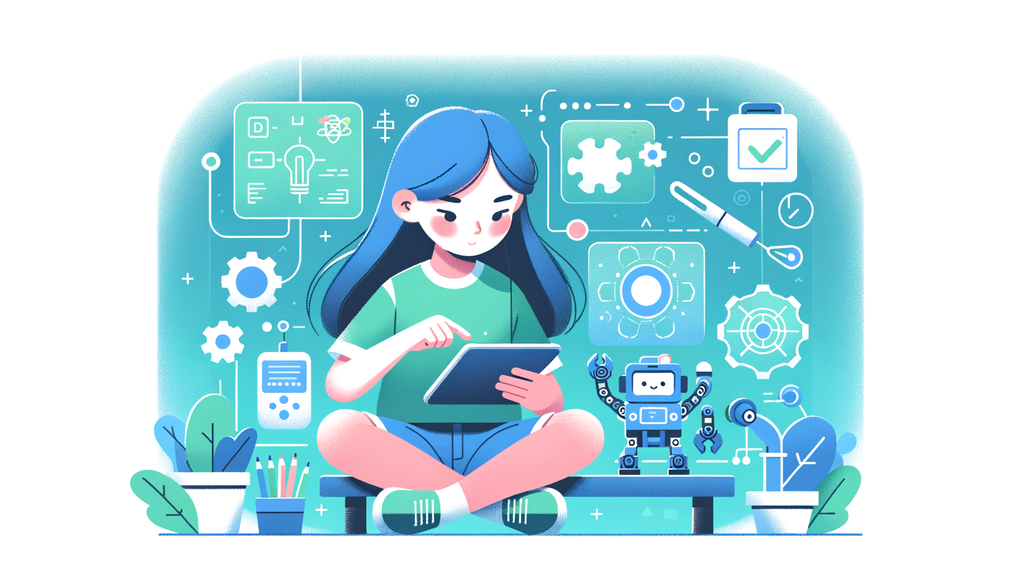STEM for All: Inclusive Science and Tech Programs for Kids with Special Needs

STEM for All: Inclusive Science and Tech Programs for Kids with Special Needs
In recent years, there has been a significant increase in interest and opportunities in the fields of Science, Technology, Engineering, and Mathematics (STEM). But what about children with special needs or who are identified as gifted and talented? Is there room for them within this expanding field?
The answer is a resounding yes! In fact, an inclusive STEM program can significantly benefit all students regardless of their developmental differences. Whilst some children may face challenges, others may excel in certain areas beyond their age level. For these reasons, it’s important that we offer inclusive and innovative STEM programs that cater to all children’s needs.
Why is STEM Important for Children with Special Needs?
Children with special needs have the same curiosity and interest in the world around them as any other child. STEM fields offer them opportunities to explore this curiosity, solve problems and think creatively, much like their peers. Indeed, an inclusive STEM program doesn’t just allow children with special needs to participate—it enables them to excel. Through individualized learning strategies and hands-on activities that cater to their unique learning style, STEM programs can really help these kids to shine.
In addition to this, early exposure to STEM can potentially open up future career paths for your child. According to the U.S. Bureau of Labor Statistics, the employment in STEM occupations is projected grow to more than 9 million by 2022 - an increase of about 13% since 2012. Preparing children for this emerging field is not just a good idea, it’s essential!
Kindly read up on specialized Learning in our previous posts, especially Tech to the Rescue: The Best Apps for Special Education.
This same principle applies to children who are identified as gifted and talented. These children often need an educational approach that challenges their advanced abilities whilst nurturing their curiosity. That’s where STEM comes in. It provides them with the perfect platform to explore, invent, and discover at their own lively pace.
Finding the Right STEM Program for Your Child
-
Personalization: Look for programs that offer personalized instruction. Every child has unique learning needs and abilities. Make sure that the STEM program is able or willing to adapt lessons to meet those needs. Our posts on Your Child’s Rights: Understanding the IEP Process and IEP vs. 504 Plan: Knowing the Difference can offer further insights into personalized education plans.
-
Hands-On Activities: Practical, hands-on activities are critical for learning in STEM. Ensure the program includes several practical lessons and experiments to help children understand concepts better.
-
Qualified Instruction: The quality and dedication of the teachers in a STEM program are indispensable. Look for programs that have instructors who are experienced in teaching and nurturing both children with special needs as well as those who are gifted.
-
Real-World Application: STEM isn’t just about learning scientific phenomena or solving complex mathematical problems. It’s about applying these principles to everyday life. Programs that feature this real-world application are more likely to keep students engaged and make the learning process more enjoyable.
At the end of the day, the most important factor when considering STEM programs for your child is that they foster a love of learning and curiosity.
STEM is a field that offers endless possibilities, irrespective of a child’s learning abilities or differences. If you haven’t already introduced your child into this world, then finding an inclusive and specialized program could be the first step towards revealing a hidden passion or untapped potential. In our ever-evolving world, let’s strive to empower all our children with the tools, skills, intrigues, challenges, and rewards that STEM has to offer.
In the end, what we wish to cultivate is a community of lifelong learners who can lead and contribute to a future where everyone, regardless of their abilities, has an opportunity to succeed. Visit our article on High Flyers: Nurturing Leadership in Gifted Children and Understanding Twice-Exceptionality: A Parent’s Guide to learn more about supporting children with different learning abilities.
Happy STEM learning!